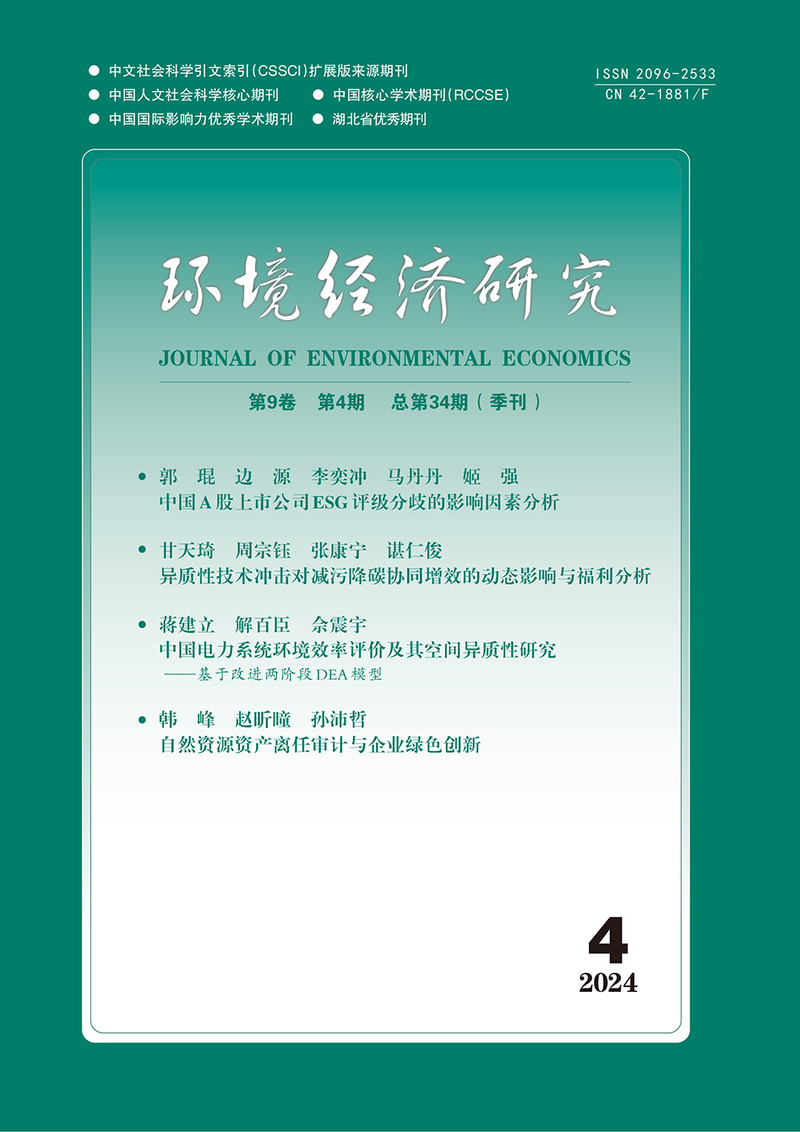摘要:健全现代环境治理体系是推动绿色发展的必然要求,从学理上阐明环境治理的逻辑是其题中应有之义。本文从中国的历史和现实出发,基于理论和实证两个角度梳理了中国式分权下的环境治理逻辑。首先,本文创新性地将中国式分权的要素凝练为组织结构(权力分配)、激励机制和运行机制三点,通过阐述三者之间的关系梳理出中国式分权的逻辑框架。其次,鉴于激励机制对运行机制的引导作用,在中国式分权的逻辑框架内,本文以权力分配为基础,着重考察激励机制和运行机制对环境治理的影响,从而总结出中国式分权下的环境治理逻辑。再次,采用县级面板数据,对省以下分权与环境治理之间的因果关系进行回归,结果发现分权程度的提高不利于环境治理。最后,结合理论机理,对基准回归结果的内涵加以解释,认为经济激励、政治激励利于财政收入的增加和经济发展,可能不利于环境治理,而社会激励利于公共品提供,从而于环境治理有益。此外,激励目标的多元化弱化了政治激励对经济增长的作用,增强了社会激励对公共品提供的积极作用,两者均益于环境治理。本文的研究结果对如何发挥激励机制的作用来督促地方政府提供高质量的公共服务有一定启示。
关键词:中国式分权;激励机制;环境治理;多目标激励
The Logic of Environmental Governance Under the Decentralization of Chinese Style:Theoretical Analysisand Empirical Testing
Zhang Caiyun
Abstract: A modern environmental governance system is inevitable for promoting green development, and elucidating the logic of environmental governance from a theoretical perspective is its inherent meaning. Based on the history and reality of China, this paper answers the question of the influence of Chinese-Style decentralization on environmental governance. First of all, this paper creatively condenses the elements of Chinese-Style decentralization into three parts: organizational structure (power distribution), incentive mechanism and operation mechanism, and combs out the logical framework of Chinese-Style decentralization by elaborating the relationship among them. Secondly, in view of the guiding role of incentive mechanism on the operation mechanism, in the logic framework of Chinese-Style decentralization, based on the power distribution, this paper focuses on the analysis of the impact of incentive mechanism and operation mechanism on environmental governance. Thirdly, using the panel data of 1333 counties in China of six years, the causal relationship between decentralization and environmental governance is regressed. The results show that the improvement of decentralization is not conducive to environmental governance. Finally, combined with the theoretical mechanism, we explain the connotation of the benchmark regression results, and find that economic incentive and political incentive are conducive to the increase of fiscal revenue and economic development and may not be conducive to environmental governance, while social incentive is conducive to the provision of public goods, thus beneficial to environmental governance. The diversification of incentive objectives has weakened the role of political incentives in economic growth, benefited environmental governance, and strengthened the positive role of social incentives in environmental governance. The results have policy implications for how to leverage the role of incentive mechanisms to urge local governments to provide high-quality public services.
Keywords: Chinese-Style Decentralization;Incentive Mechanism;Environmental Governance;Multi-Objective Incentive
全文:![]() 论中国式分权下的环境治理逻辑:理论分析及实证检验.pdf
论中国式分权下的环境治理逻辑:理论分析及实证检验.pdf
